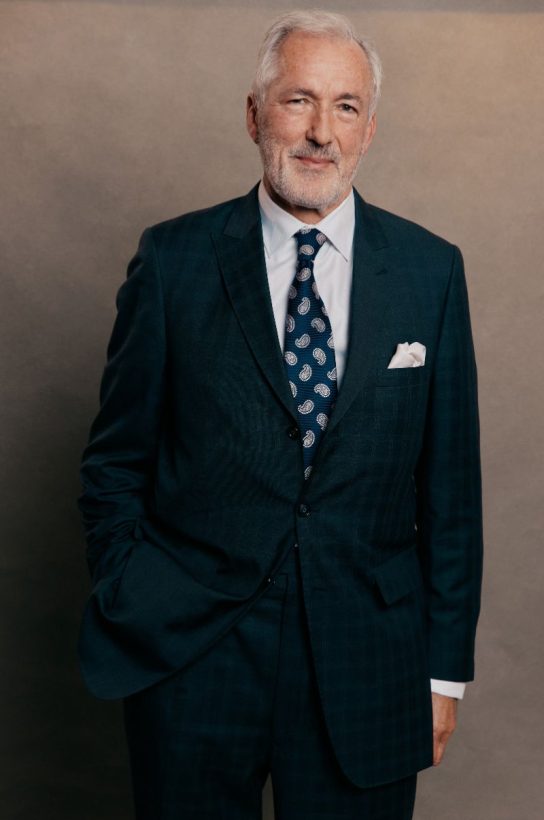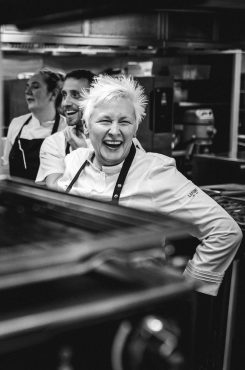CODE meets: Jeremy King, Jeremy King Restaurants
Published 1 December 2023

Ahead of his much-anticipated comeback in 2024, CODE’s Adam Hyman speaks to Jeremy King about how he’s building his new team, his renewed approach to looking after staff and his general thoughts about working in hospitality.
Adam Hyman: Now that you’re back in the market with three new restaurants opening next year, how are you going about hiring for Jeremy King Restaurants in this current climate?
Jeremy King: It’s a very pertinent question. A lot of people might be expecting me to go calling on my former staff. I feel very principled about not doing that – whether it’s my old restaurants or other restaurateurs’ restaurants. However, of course I’d be delighted to hear from anybody ready to move on. I particularly, with my previous staff, feel I have a debt to them to make sure they make the right career moves. It reminds me of a quote: “Leadership is not about being in charge, it’s about looking after the people in your charge.”
AH: You’ve been out of the business for over 18-months. Has that changed your perspective on being an employer?
JK: Finding staff has no doubt become more competitive and generally, I sadly believe that staff are treated worse than they were pre-pandemic. Some of this is about expediency, overloaded work schedules and one of the worst things that is happening is no training. I feel we’re going back to the dark days of hospitality where we only teach people how to do a job – to cook a menu or serve a room. We have an obligation to teach people how to be real chefs, restaurateurs and practitioners. Of course, the problem is that this costs money and time. What I’m particularly keen on at present is finding ways to empower staff. To breach the divide between proprietorship and the workforce. We have to empower staff and give them autonomy and the power to make decisions. I feel very strongly that it’s my job to enhance the opportunity to bring humanity into the experience and not just go through the process.
AH: In one of your email updates, you talked about being a better employer. How are you going to do this?
JK: Towards the end of my time at Corbin & King, we were looking at ways of enriching the staff experience because in turn that enriches the customers’ experience. Historically restaurants concentrate on making sure people don’t make mistakes. It was Leika Fennell, managing director at the time, who came up with the phrase, ‘let’s catch people doing things well’ as opposed to doing them badly. Yet I don’t want to just carry on doing what we did before even though that was successful. I want to be a better employer and leader.
At The Park we were struggling to find sufficient space for staff facilities, so we either sacrificed the private room or found more space. In the end we’ve rented another 1,100 sq ft, so we have a proper staff changing room. Unless the industry does everything it can to make working conditions better and people feel more valued, the industry is going to continue to haemorrhage staff and find it difficult to obtain new ones.
My new colleagues are coming up with innovative ideas. Management are not going to write the rotas – the staff should. I’ve always been really, really keen to hire more people over the age of 50. I feel there’s so many mothers who have previously had careers in hospitality but feel they’re precluded. The restaurant business is one of the most reactionary businesses in the world and we hate change. We’ve got to start being innovative in what people want – allowing mothers to work the hours so they can drop-off and pick-up their kids from school, for example.
AH: My personal feeling of late is that there has been a noticeable drop in service standards in this country. What are your thoughts on this?
JK: People have been so desperate for staff that they’ve not been trained. The truth of the matter is one of the worst feelings is to go onto a restaurant floor improperly trained or informed. The more you train people, the more confident they become and therefore will give people a better time. Historically, too much of the hospitality operation has been about fear, whether in the kitchen or on the floor. People felt that asking for help was a sign of weakness, whereas asking for help is a sign of strength.
AH: How do we better promote hospitality as a career in the UK?
JK: My fear, which is something I often talk about, is if this business is just about finding four walls, putting in a kitchen, seating people, taking an order, giving them food, clearing the plates, giving a bill and saying goodbye – it’s the most boring industry in the world. But if you take an interest in the architecture of it and the fact that every contemporary innovation in arts, music, literature, politics have all taken part in grand cafés it is one of the most interesting. It’s all too often represented as servile and mechanical. That’s why we dearly, dearly miss the staff from the continent who culturally understand that being in the restaurant business is a respectful business full of craft and skills.
Jeremy King Restaurants now recruiting
careers@jeremykingrestaurants.com
jeremykingrestaurants.com




